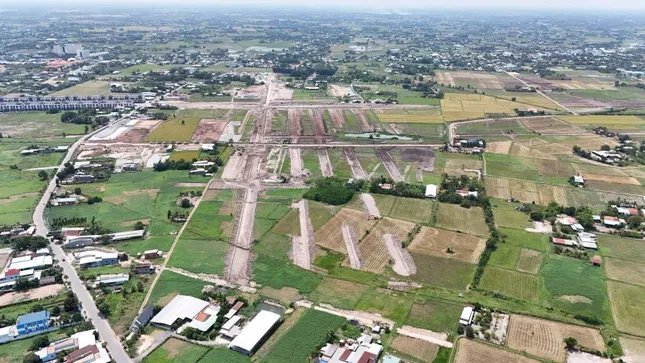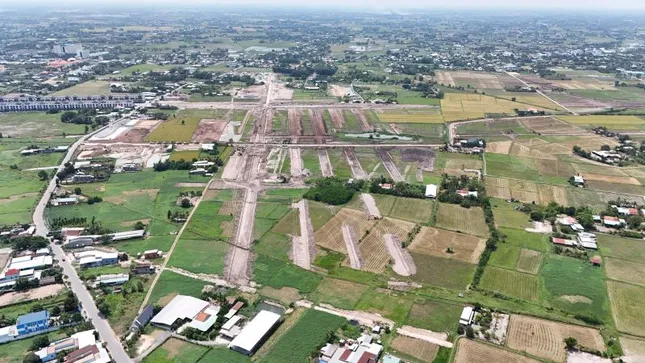The Director of the Institute of Resource and Environmental Economics in Ho Chi Minh City has proposed to the city’s People’s Committee Chairman, Nguyen Van Duoc, to increase the price of agricultural land in the land price framework to 65-70% of residential land prices to reduce land use fees for locals.
Decision 79/2024 on amending and supplementing Decision 02/2020 on land prices in Ho Chi Minh City has been instrumental in addressing compensation, resettlement, land rent, and tax-related matters.
However, the current land price framework sets agricultural land prices too low, resulting in budget shortfalls as residents withdrew their land-use tax dossiers over the past year.
The Institute of Resource and Environmental Economics has scientifically assessed the market impact of applying the land prices as per Decision 79/2024. Their findings indicate that the increased land prices have adversely affected the overall market in the city.

The Institute proposes adjusting agricultural land prices in Decision 79 to 65-70% of residential land prices.
This has led to reduced budget revenues from changes in land use purposes, hindered the real estate market, and caused a significant downturn in the construction materials market due to limited new construction initiatives by residents. These changes have had a noticeable impact on people’s livelihoods, affecting business premises rentals, purchases, and consumption. It is also expected to influence the city’s double-digit growth target for 2025.
According to Dr. Pham Viet Thuan, Director of the Institute of Resource and Environmental Economics, residents now face a 250-300% increase in taxes when converting agricultural land to residential use compared to pre-land price framework rates. This is due to the significant price differential between residential and agricultural land prices in Ho Chi Minh City’s adjusted land price framework.
As a result, land use fees for converting land purposes have surged, calculated by subtracting the agricultural land price from the residential land price, making it unaffordable for many residents.
To ensure objectivity and compliance with the Land Law 2024, and considering that the new land price framework will take effect on January 1, 2026, the Institute of Resource and Environmental Economics recommends that the Chairman of the Ho Chi Minh City People’s Committee reevaluate the low agricultural land prices, which lack scientific basis and market principles as stipulated in Decree 71/2024.
Therefore, it is proposed to adjust the land prices for the last six months of 2025 to alleviate the challenges faced by residents and increase budget revenues before the new land price framework takes effect on January 1, 2026, for the newly merged Ho Chi Minh City. This localized adjustment of agricultural land prices under Decision 79/2024 falls within the authority of the Ho Chi Minh City People’s Committee and complies with the Land Law and related legal provisions.
The Institute of Resource and Environmental Economics suggests adjusting agricultural land prices in Decision 79 to 65-70% of residential land prices within the land price framework. This adjustment applies to agricultural land parcels located within residential areas or those with residential land on the same plot.
















